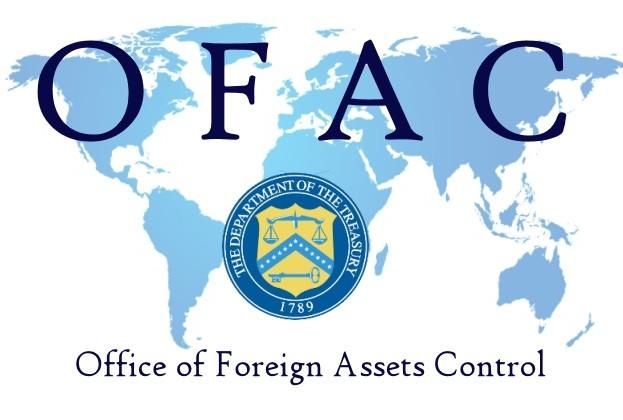Sanctions Lawyers and Solicitors
Sanctions lawyers play a pivotal role in helping clients navigate this complex landscape, ensuring that businesses and individuals remain compliant with applicable regulations and avoid the severe consequences of non-compliance. Legal professionals at sanctions law firm are responsible for advising clients on the intricacies of diverse sanctions regimes, representing them in enforcement actions, and assisting in the development and implementation of robust compliance programs.

Sanctions can damage your reputation, freeze your assets, and paralyze your business. Specialists at an economic sanctions law firm will help you navigate the current sanctions regimes. Our goal is to ensure that your business operates legally in the international market.
Our lawyers provide support to companies, financial institutions, and individuals. As experienced OFAC sanctions attorneys, we offer consultations, implement compliance tools, and protect business interests.

We are Sanctions Lawyers
We are an international team of experienced solicitors specializing in legal matters related to global sanctions, including OFAC (Office of Foreign Assets Control) sanctions. Our expertise allows us to provide comprehensive legal advice and solutions tailored to your specific needs.
With in-depth knowledge of international sanctions laws, we assist individuals, businesses, and financial institutions in navigating complex regulatory frameworks. Our services include advising on compliance with sanctions regulations, removal from SDN listing, and providing guidance on mitigating potential legal risks associated with cross-border transactions.
Whether dealing with U.S., EU, UK, or UN sanctions, our team is equipped to deliver effective strategies that protect our clients’ interests and help them achieve their business objectives.
What is Sanctions Law?
Sanctions are a mechanism that includes legal and administrative restrictions. Legal measures include bans on financial transactions, asset freezes, fines, and imprisonment.
Administrative restrictions include export controls, enhanced reporting and compliance requirements, and increased offshore oversight.
Sanctions are imposed to exert pressure and influence violators. For example, companies suspected of violating trade regulations often seek the assistance of an export control lawyer. This may involve the supply of dual-use goods to countries on sanctions lists.
In general, sanctions may pursue the following objectives:
- Political – pressure on states that annex foreign territories, violate international treaties, or interfere in other countries’ internal affairs.
- Economic – targeting businesses that evade tax obligations or finance illegal regimes.
- Military – preventing the export of weapons or other threats to international security.
Sanctions are imposed by various entities, including states, international organizations, and regional blocs. Many countries establish their own sanctions lists. For example, an OFAC attorney assists companies included in the U.S. “blacklist” by the Office of Foreign Assets Control. Restrictions are also imposed by the UN, OSCE, or the EU.
Your business may be subject to multiple sanctions regimes simultaneously. An experienced sanctions attorney can assess the real risks and develop a strategy for compliance with sanctions regulations.
Types of Sanctions
Sanctions can be categorized based on their area of impact. Each category has its mechanisms and consequences. Navigating them is complex, so it is essential for a sanctions solicitor to analyze the specific threats your business faces and how to mitigate them.
Our sanctions solicitor provides tailored guidance to represent clients navigate the complexities of these measures and ensure compliance with relevant laws and regulations in other jurisdictions.
Economic Sanctions
These measures are aimed at restricting the economic activity of companies, individuals or states.
Trade embargo. This is a complete or partial ban on the import or export of goods to a specific country.
Export control. Restriction of supplies of strategic goods and technologies. For example, microchips, software, high-tech equipment. If your company operates in this area, consult with economic sanction lawyers.
Restriction of access to markets. This is a ban on companies from sanctions lists participating in international tenders, attracting investments, taking government orders in specific jurisdictions.
Quotas and duties. Introduction of taxes or restrictions on the supply of specific goods.
Financial Sanctions
This group of measures restricts access to financial markets and the ability to conduct international transactions.
Asset freeze. Blocking accounts, real estate, and other property of companies or countries on the sanctions list. It is extremely difficult to regain control of assets without the help of a qualified financial sanctions solicitor.
Transaction ban. Blocking financial transactions through banks and international payment systems.
Restriction of access to financial institutions and instruments. Ban on the use of international payment systems, as well as lending, insurance, etc.
Blocking crypto exchanges and wallets – tools that are potentially used to circumvent sanctions.
Offshore Sanctions
Offshore companies and jurisdictions help to hide assets or bypass sanctions. Specific restrictions are applied to them. How does this happen?
- The regulator identifies risks – analyzes transactions and beneficiaries of the company.
As a result, the company gets on the sanctions lists. And the consequences occur:
- increased financial monitoring;
- ban on registering companies with offshore characteristics;
- blocking offshore accounts;
- restriction of transactions through offshore companies.
Cooperation with an offshore company or jurisdiction often leads to the loss of tax benefits and unscheduled tax audits.
If you want to prevent such risks, we recommend consulting an offshore sanctions lawyer.
International Sanctions
These are measures applied by international organizations. Their goal is to support global security and law and order.
The UN imposes sanctions on countries that threaten international security (Iran, North Korea).
The EU provides for measures for states or companies that violate human rights, finance terrorism and threaten the security of Europe.
OFAC USA (Office of Foreign Assets Control). One of the most influential sanctions bodies. Monitors compliance with restrictions and initiates multi-million dollar fines for their violation. It is in these cases that a business needs a qualified OFAC lawyer.
OFSI UK (Office of Financial Sanctions Implementation). Imposes financial sanctions and monitors their compliance by British companies.
International sanctions often combine financial, economic and legal measures. Effective protection of interests requires a deep understanding of the sanctions mechanisms.
Therefore, it is important to contact an experienced international sanctions lawyer with successful cases in this category of cases in a timely manner.
Areas of Practice of OFAC Lawyers
OFAC Sanctions
Our lawyers provide expert assistance regarding OFAC sanctions, helping clients understand and comply with complex regulations. We assist businesses and individuals in managing the challenges of OFAC sanctions effectively and efficiently.
OFAC Compliance
We assist in developing and implementing effective compliance programs to minimize the risk of violations and their consequences. Your business will be safeguarded against potential threats related to complex and ever-changing OFAC requirements.
OFAC Licensing
We offer professional advice on licensing matters, including the preparation and submission of applications, and liaison with regulatory authorities to obtain the necessary permits for sanctioned operations.
OFAC SDN List Removal
We provide qualified legal assistance in the process of delisting from the SDN List. Our services include preparing petitions and effectively engaging with OFAC to restore your reputation and business standing.
Release of Blocked Funds
We provide guidance and representation to facilitate the release of funds that have been frozen due to sanctions-related issues.
Anti-Money Laundering (AML) Compliance
Our services extend to advising on AML regulations, helping to protect businesses from illegal financial activities and ensuring adherence to global anti-money laundering standards.
Why Choose Sanctions Lawyers?
In a world where a mistake can cost you your business, you need a partner who not only knows the law but also understands its application in the context of your business. Why do clients choose our sanctions lawyer? Because we grasp how international trade, sanctions and other export control compliance mechanisms function and know how to leverage this expertise to benefit our clients.
Sanctions law firm provide more than just legal support — sanctions solicitors and lawyers offer strategies that enable you to protect your interests while ensuring compliance with all relevant legal requirements.
Our expertise
Sanctions lawyers and solicitors provides legal services in international trade and export control. Our strengths include expertise in the Export Administration Regulations (EAR), International Traffic in Arms Regulations (ITAR), EU Dual-Use Regulation, Council Regulation (EC) No 428/2009, Regulation (EU) 2019/125, UK Export Control Act 2002, and Export Control Order 2008.
We develop internal compliance programs to meet the requirements of OFAC, EU Sanctions Regulations, and UK Sanctions Regulations.
Our lawyers conduct internal investigations and representing clients before OFAC, OFSI, BIS, DDTC, HMRC, the EU Commission, and other regulatory bodies, and advise on export control and sanctions matters across multiple jurisdictions.
We ensure compliance for your operations under:
- EAR (Export Administration Regulations)
- ITAR (International Traffic in Arms Regulations)
- EU Dual-Use Regulation
- UK Export Control Order 2008
- Trade and economic sanctions administered by OFAC, EU Sanctions, and UK Sanctions
ISanctions Programs and Regimes Our Sanctions & Export Controls Lawyers Assist With
A sanctions program is a set of specific restrictive measures. These are imposed on individuals, companies, economic sectors, and even entire states.
A sanctions regime encompasses the norms, principles, and procedures for their application. To effectively protect businesses, an economic sanctions attorney thoroughly studies the specifics of key sanctions programs and regimes.
U.S. Sanctions (OFAC)
Companies that work with American partners are required to comply with OFAC restrictions. Otherwise, they face asset blocking, financial transaction bans, and export restrictions. Sanctions apply to those suspected of having ties to terrorism, money laundering, and threats to US national security.
European Union Sanctions (EU)
The sanctions regime applies to EU members, as well as anyone operating within the jurisdiction of the European Union. The rules include checking counterparties on sanctions lists, complying with export regulations, and obtaining permits for individual transactions. Therefore, an experienced export sanctions lawyer is needed to enter the European market.
United Kingdom Sanctions (OFSI)
The sanctions programs are aimed at combating corruption, terrorist financing, and threats to the national security of Great Britain. The regime concerns companies and financial institutions that operate in British jurisdiction. Failure to comply with OFSI sanctions leads to serious fines and criminal liability. Including arrest for company executives
United Nations Sanctions
Develops measures for violators of international law and order who pose a global threat to peace and security. Sanctions are introduced by a decision of the Security Council. These restrictions are mandatory for all participating countries. But the effectiveness of UN sanctions depends heavily on their implementation at the national level in each individual state.
Economic Sanctions Programs Our Lawyers Assist With

A qualified sanctions solicitor helps businesses grow while ensuring compliance with sanctions programs. This includes working with countries listed under sanctions
- Cuba Sanctions
- Turkey Sanctions
- North Korea Sanctions
- Iran Sanctions
- Venezuela Sanctions
- China Sanctions
- Syria Sanctions
Please check full list of sanctions programs.
An OFAC sanctions attorney helps businesses establish effective operations within complex and diverse sanctions regulations. This assistance helps prevent:
- Asset freezes – accounts in international banks are “frozen,” making it impossible to process payments, receive funds, or conduct any other financial transactions.
- Export restrictions – bans on the supply of equipment, technology, software, and other goods.
- Financial measures – limitations on access to international payment systems and banks, as well as blocking transactions with sanctioned companies or individuals.
Legal Support from an OFAC Law Firm Includes:
- Consulting and strategy development – analyzing real risks and creating an action plan to minimize them.
- Counterparty screening – assessing partners, clients, and suppliers for sanctions risks.
- Transaction support – verifying financial transactions to prevent asset freezes.
- Regulatory engagement – obtaining licenses and permits for working with sanctioned countries and entities, submitting requests for sanctions status reviews.
- Business defense – representing businesses in regulatory investigations and legal proceedings.
To receive consultation and support from international sanctions lawyers, contact us using the details provided on this website.

Sanctions Lawyers FAQ
The 4 types of sanctions: Economic sanctions, diplomatic sanctions, military sanctions, and sports/cultural sanctions.
A sanction in law refers to a measure imposed by a government or regulatory authority to enforce compliance with rules, laws, or regulations, often by imposing penalties, restrictions, or coercive measures on individuals, organizations, or countries.
Sanctions can be issued by national governments, regional organizations (such as the European Union), and international organizations (such as the United Nations).
Sanctions aim to change the behavior of the targeted entity, discourage specific actions or policies, and uphold international norms or laws. They can include trade restrictions, asset freezes, travel bans, and other measures that restrict the target’s ability to engage in economic, diplomatic, or military activities.
Multiple countries may be under sanctions, depending on the issuing authority and the reasons for the sanctions. Examples include North Korea, Iran, Russia, and Venezuela.
The two main types of sanctions are economic sanctions (which restrict trade, investment, or financial transactions) and diplomatic sanctions (which involve measures such as expelling diplomats, reducing diplomatic relations, or excluding the targeted entity from international forums).

